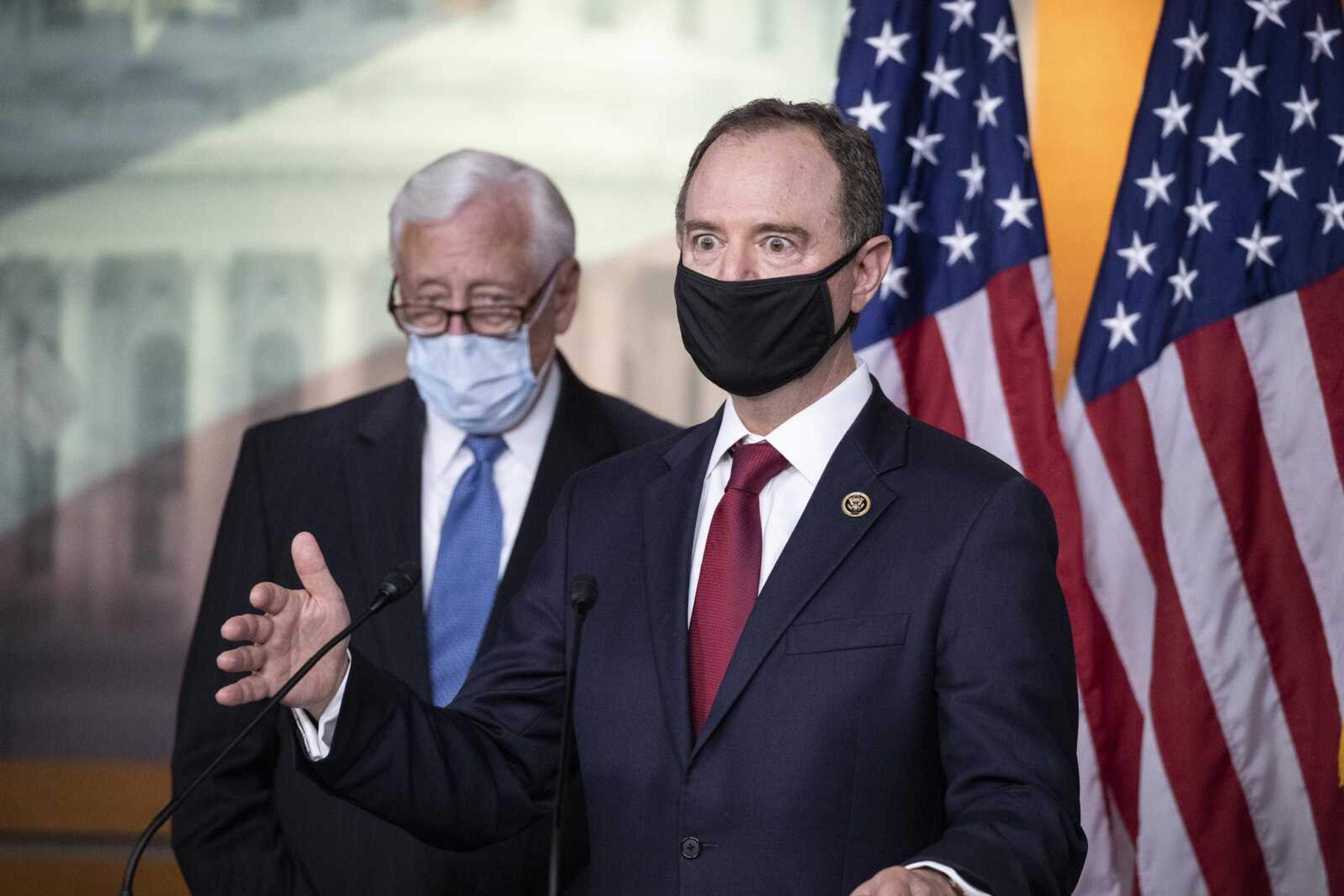Intel chiefs brief congressional leaders on Russia bounties
WASHINGTON -- The U.S. intelligence chiefs conducted classified briefings Thursday for congressional leaders who have demanded more answers about intelligence assessments that Russia offered bounties for killing U.S. troops in Afghanistan. President Donald Trump has called news reports about the assessments a "hoax," but hasn't directly addressed their substance or whether the U.S. has or will respond to Russia...
WASHINGTON -- The U.S. intelligence chiefs conducted classified briefings Thursday for congressional leaders who have demanded more answers about intelligence assessments that Russia offered bounties for killing U.S. troops in Afghanistan.
President Donald Trump has called news reports about the assessments a "hoax," but hasn't directly addressed their substance or whether the U.S. has or will respond to Russia.
Top intelligence officials, including CIA Director Gina Haspel and Director of National Intelligence John Ratcliffe, conducted the closed-door briefing for a group of lawmakers dubbed the "gang of eight" -- Senate Majority Leader Mitch McConnell, House Speaker Nancy Pelosi and the top Republicans and Democrats on the two intelligence committees.
The group regularly receives classified briefings at the highest levels, and leaders rarely speak about them. None of the lawmakers leaving the meeting would comment on it.
Senate Democratic leader Chuck Schumer would only say that "independent of the briefing, I don't think the president is close to tough enough on Vladimir Putin."
Pelosi said ahead of the meeting that she hopes Republicans in the briefing are "open to the truth," and she called for additional sanctions on Russia.
The White House has insisted that Trump wasn't briefed on the assessments because they hadn't been verified, even though it's rare for intelligence to be confirmed without a shadow of doubt before it is presented to senior government decision-makers.
"The White House has done a con, saying that because all of the agencies of intelligence have not signed off on this, it wasn't worthy of the president's attention," Pelosi said on MSNBC. "You know the death of our young people in Afghanistan or any place is worthy of the president's attention."
The House intelligence committee will also receive a briefing on the matter Thursday afternoon, according to a person familiar with that meeting who requested anonymity because it was not publicly disclosed.
The Capitol Hill meetings come as Trump has been under increasing pressure to provide answers about the U.S. response to Russia or the lack of one. But the president has continued to downplay the intelligence, calling it "fake news" designed to damage him and the Republican Party.
The intelligence assessments that Russia offered bounties were first reported by The New York Times, then confirmed to The Associated Press by American intelligence officials and others with knowledge of the matter.
Administration officials have insisted they have taken intelligence seriously. National security adviser Robert O'Brien said Wednesday that the CIA and Pentagon pursued the leads and briefed international allies. Secretary of State Mike Pompeo said the situation was handled "incredibly well" to ensure the safety of U.S. troops.
"We took this seriously, we handled it appropriately," Pompeo said, without giving additional details. He said the administration receives intelligence about threats to Americans "every single day" and each is addressed.
A group of House Democrats who were briefed at the White House earlier this week said Trump was bowing to Russian President Vladimir Putin and risking U.S. soldiers' lives.
Texas Rep. Mac Thornberry, the top Republican on the Armed Services Committee, said the panel would "leave no stone unturned" in seeking further information. Sen. Pat Toomey, R-Pa., called on the administration to provide a briefing to all senators after he reviewed some of the intelligence in a secure room in the Capitol.
"If it is concluded that Russia offered bounties to murder American soldiers, a firm American response is required in short order," Toomey said.
Other Republicans defended the president, saying they had confidence in the administration's response. Senate Majority Leader Mitch McConnell said he didn't think Trump should be "subjected to every rumor."
White House press secretary Kayleigh McEnany on Wednesday pointed to an individual who she said made the decision not to brief Trump, identifying the person as a female CIA officer with more than 30 years of experience. O'Brien, the national security adviser, said the person was a "career CIA briefer."
O'Brien said the intelligence wasn't brought to Trump's attention initially because it was unverified and there was no consensus among the intelligence community.
While Russian meddling in Afghanistan isn't new, officials said Russian operatives had become more aggressive in their desire to contract with the Taliban and members of the Haqqani Network, a militant group aligned with the Taliban in Afghanistan and designated a foreign terrorist organization in 2012.
The intelligence community has been investigating an April 2019 attack on an American convoy that killed three U.S. Marines when a car rigged with explosives detonated near their armored vehicles as they traveled back to Bagram Airfield, the largest U.S. military installation in Afghanistan, officials told the AP.
Three other U.S. service members were wounded in the attack, along with an Afghan contractor. The Taliban claimed responsibility. The officials the AP spoke to also said they were looking closely at insider attacks from 2019 to determine if they were linked to Russian bounties.
Intelligence officials told the AP that the White House first became aware of alleged Russian bounties in early 2019 -- a year earlier than had been previously reported. The assessments were included in one of Trump's written daily briefings at the time, and then-national security adviser John Bolton had told colleagues he had briefed Trump on the matter.
Connect with the Southeast Missourian Newsroom:
For corrections to this story or other insights for the editor, click here. To submit a letter to the editor, click here. To learn about the Southeast Missourian’s AI Policy, click here.










